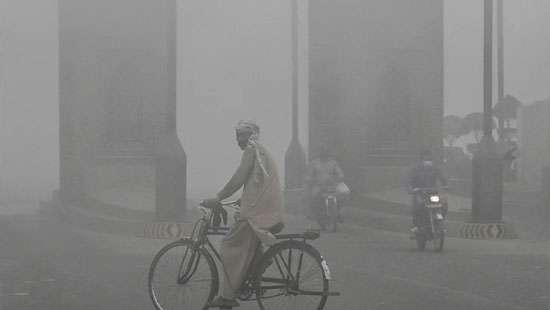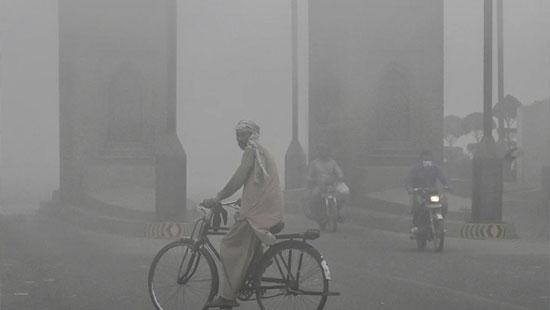Reply To:
Name - Reply Comment

 (CNN) - Record-breaking levels of thick, toxic smog that have shrouded eastern Pakistan and northern India since last month can be seen in striking satellite imagery.
(CNN) - Record-breaking levels of thick, toxic smog that have shrouded eastern Pakistan and northern India since last month can be seen in striking satellite imagery.
A huge cloud of gray smog blankets Pakistan’s Punjab province and stretches out east into India, over the capital New Delhi and beyond, satellite imagery from NASA Worldview shows.
The pollution has forced authorities in Pakistan to close schools and public spaces as the acrid smog threatens the health of tens of millions of people.
Images from the Pakistani cities of Lahore and Multan this weekend show the dark haze engulfing streets and blocking buildings from view.
Pollution in the region ramps up each winter, when an ominous yellow haze blankets the skies due to a combination of farmers burning agricultural waste, coal-fired power plants, traffic and windless days. Air quality worsens in the winter because colder and drier air traps pollution, rather than lifting it away, as warm air does when it rises.
Though major South Asian cities suffer with poisonous smog each year, officials in Pakistan’s second biggest city Lahore have characterized this season as unprecedented.
On Monday, the city’s air quality index was above 1,200, a level considered “hazardous,” according to IQAir, which tracks global air quality. A reading above 300 is considered hazardous to a person’s health.
The air quality index in parts of Punjab, Pakistan’s most populous province of 127 million people, has exceeded 1,000 multiple times in the past week, according to IQAir.
In the Punjab city of Multan on Monday, the reading for the tiniest and most dangerous pollutant, PM2.5, was more than 110 times higher than safe levels set by the World Health Organization.
When inhaled, PM2.5 travels deep into lung tissue where it can enter the bloodstream. It comes from sources like the combustion of fossil fuels, dust storms and wildfires, and has been linked to asthma, heart and lung disease, cancer, and other respiratory illnesses, as well as cognitive impairment in children.
Hospitals and clinics in Pakistan have become inundated with patients suffering from the effects of pollution, with Punjab health officials saying more than 30,000 people have been treated for respiratory ailments in smog-hit districts, according to the Associated Press.